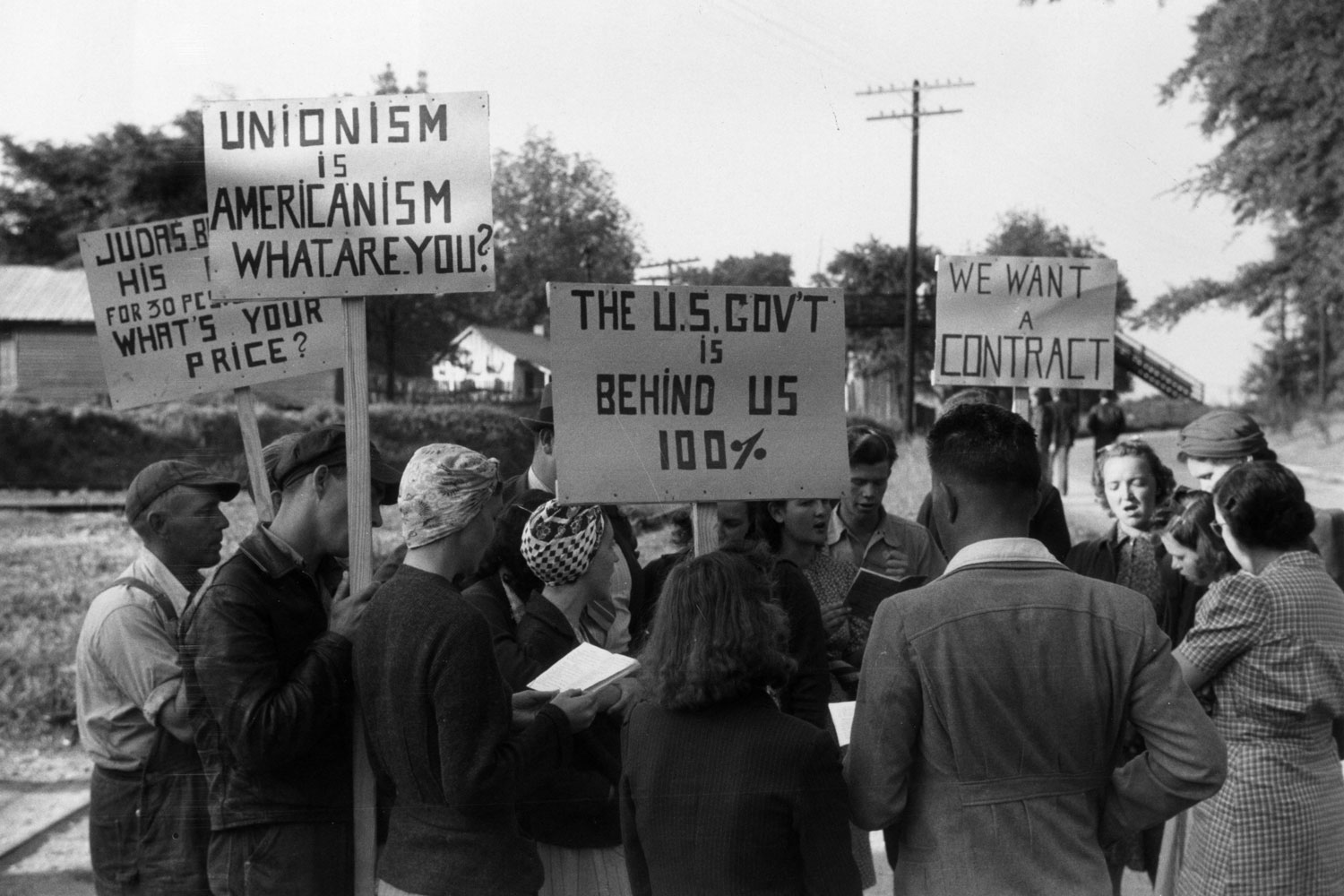Economic Nonsense: 48. Labour Unions are essential to improve wages and conditions for workers
It is actually improved productivity, not labour unions, that has improved the rewards of labour. People earned less money in former times because productivity was low. People were paid according to the worth of their input into the production process. When each worker contributed little, they were low paid. As technology and production methods improved, so did the worth of each worker's input, and wages increased accordingly.
Employers compete for labour to produce goods and services and to make profits. They have to pay wages that attract enough workers, and compete with other employers to do so. It is true that unions can use coercive methods to impose higher costs on employers, but this limits total employment in those sectors, and thus opportunities for employment to non-unionized labour. The US auto industry features somewhat higher wages in unionized car plants, but there are far fewer of them than there are non-union plants.
Although it is improved productivity that brings higher wages, the effect of unions is often to lower productivity through restrictive work agreements that spread work out among more employees. More employees equals more members paying union dues.
In post war Britain, one group that received among the highest reward increases was the completely non-unionized sector of people who clean homes – the ones who used to be called char-ladies. The demand for their services from businessmen and women who did not have the time to do it themselves, coupled with declining numbers available to do it, led to huge pay increases.
The fundamental truth is that unions do not increase pay for workers generally. They can increase pay for their own members, but at the expense of non-members rather than at the expense of employers. Declining union membership in both the UK and the US has been the result in changes in the type of work being done. Mass manufacturing has become more automated, meaning higher wages for fewer workers, leaving others to seek non-unionized work elsewhere. Some goods once produced domestically are now bought more cheaply from countries with non-unionized workforces. The result is fewer union jobs. In the UK unionization has increasingly become a feature of public sector workers rather than private industry.

